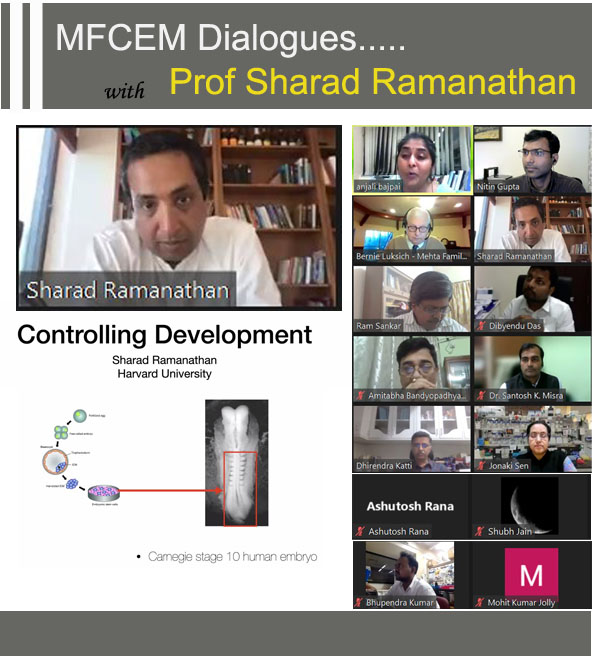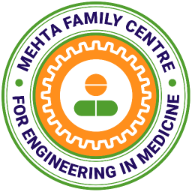
MFCEM Dialogues Series#2
with
Prof. Sharad Ramanathan
The second event of the MFCEM Dialogues was held on the 28th February 2022 over a Zoom online discussion with Prof. Sharad Ramanathan, Professor of Neurosciences and of Molecular and Cellular Biology Harvard University; and Professor of Applied Physics and of Stem Cell and Regenerative Biology Harvard University.
Prof. Sharad Ramanathan shared some of the exciting ongoing research in his laboratory, particularly, how his team is trying to decipher the signaling events/triggers involved in early human embryonic development of the Somites lining the neural tube. He gave a glimpse of his teams’ efforts to combine experimental, computational and theoretical tools to uncover the signaling permutations that orchestrate patterning of the neural tube. Prof. Ramanathan enthralled the audience with striking display of organoids cultured on 3D-printed microplates that allows unprecedented control of tempo-spatial activation of signaling pathways.
He also interacted closely with some of the PhD students with overlapping research interest. He keenly listened to their research work and chipped in with his opinion. In response to Upendra Yadav’s query on how multiple signaling pathways are tweaked in the organoids? Prof. Sharad Ramanathan, explained combinatorial use of optogenetics and magnetic beads to achieve the same.
He further elaborated how use of organoid cultures overcome constrains of limited gene manipulation possible in vivo model systems such as chick and mouse, in response to Shuchi Arora’s query on feasibility of organoids as experimental systems to explore gene functions.
When asked what larger purpose would developing such platforms serve? Prof Ramanathan explained that use of such technology would provide deep insights into very early human embryonic development, that would facilitate better understanding of many congenital diseases, for instance those involving neural tube defects.
When asked to advise the young students and researchers: Prof Ramanathan confessed he was not good in doling out advice, but strongly encouraged young bright minds to pursue a career in Science which he believes can be very exhilarating and immensely satisfying.
The session ended with an open invitation to Prof Ramanathan to visit IIT Kanpur in person, wherein he spent formative years pursuing a Master’s program in Chemistry.

